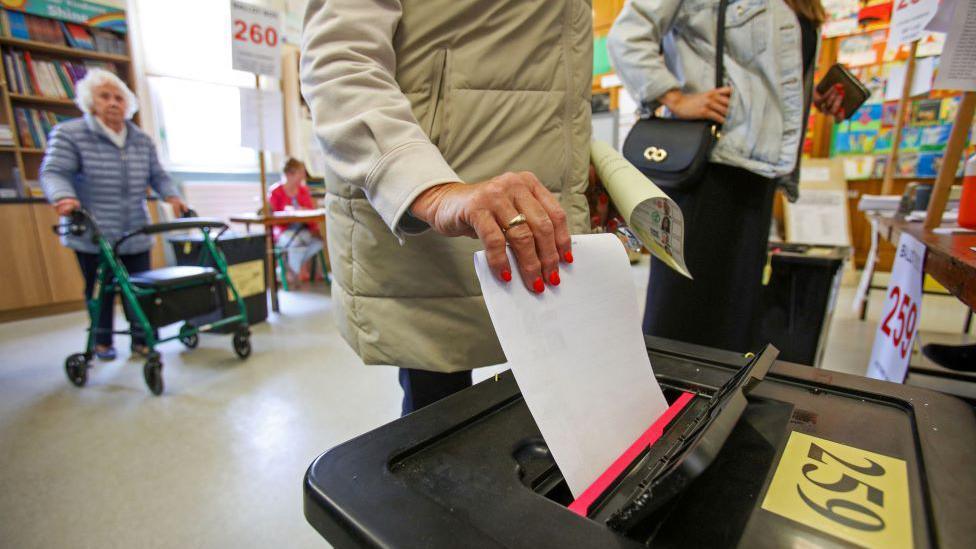Irish general election to be held on 29 November
Taoiseach (Irish Prime Minister) Simon Harris calls general election
- Published
A general election in the Republic of Ireland has officially been called for Friday 29 November.
Taoiseach (Irish Prime Minister) Simon Harris made the announcement outside government buildings in Dublin on Friday.
He said the time was "now right" to ask the Irish people for a new mandate for the government.
Harris then travelled to the Irish president's residence - Áras an Uachtaráin - to ask Michael D Higgins to dissolve the current Dáil (lower house of the Irish parliament).
Under Irish law, once the Dáil is dissolved an election must be held within 30 days.
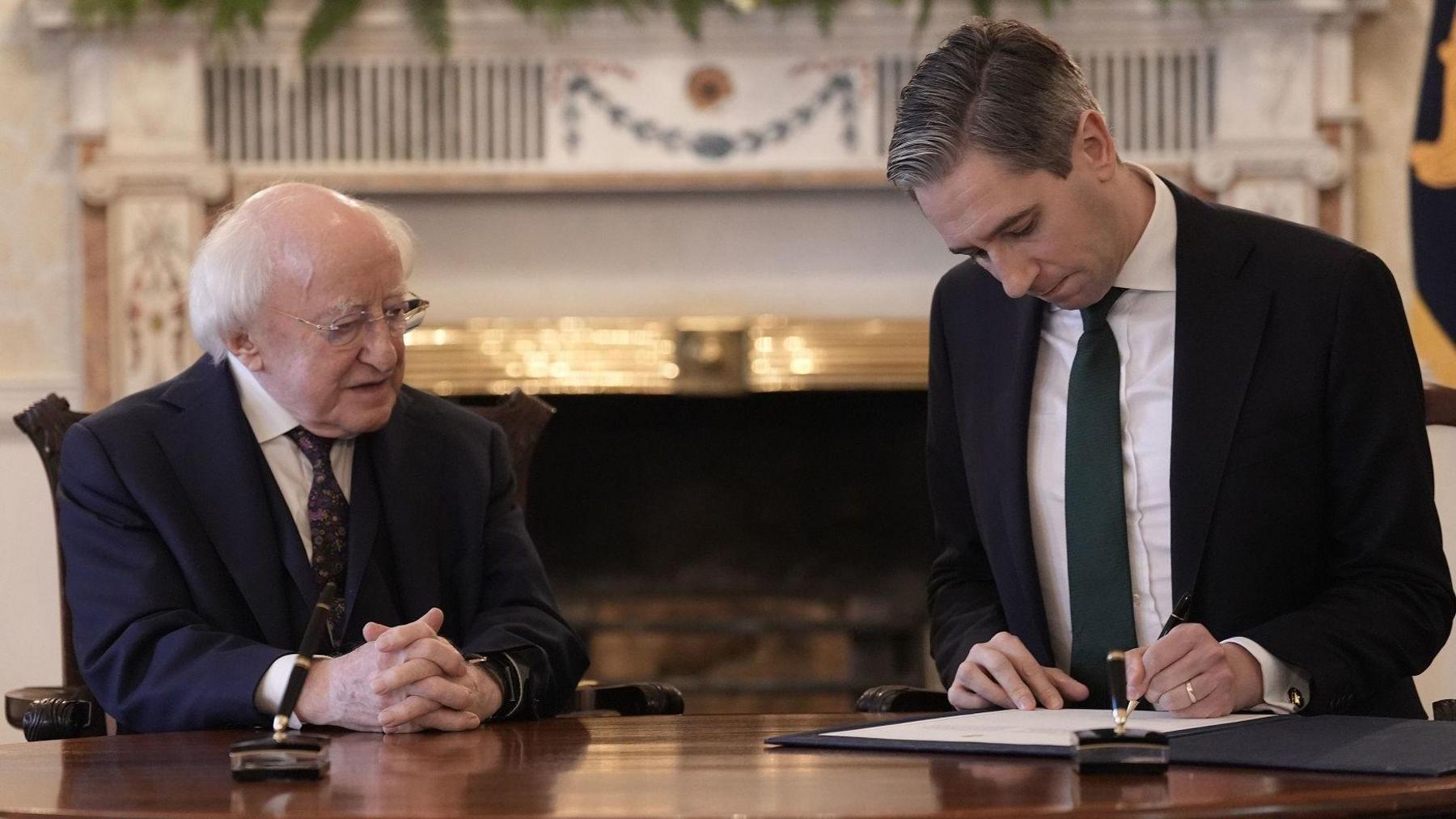
Announcing the snap poll in three weeks time, Harris said to voters that "you alone are sovereign".
"You go out and you cast your vote, and in return you're entitled to good government and hard work."
The Fine Gael leader said the coalition government - made up of Fine Gael, Fianna Fáil and The Green Party - had made "real progress" and thanked his coalition partners.
"We did not agree on every issue but we did always work hard and together for the good of the Irish people."
'Use your voice'
Harris continued by saying Ireland is a "small country with a big influence all over the world".
"We have many assets, but no asset more valuable than our people," he added.
The taoiseach said parties will seek alternative mandates over Ireland's future over the next three weeks, and it was "vital" that an election take place to consider the different "visions for our country's economic and social future".
Harris also called for the election to be a "safe and respectful campaign" for politicians and their teams.
"Finally, I ask just one thing of the Irish people: Value your vote, use your voice," he said.
"That’s how this country works, that’s how we listen, that’s how we act on your behalf."
Sworn against coalition
Fianna Fáil, Fine Gael and Sinn Féin have already sworn against a coalition ahead of the general election.
Speaking at a press conference on Friday, Martin said it is not a given that his party will enter government with Fine Gael again.
He said his party will campaign on its own merit.
"Debate is the lifeblood of democracy and elections.
"I look forward to the debates because the government will be putting forward its priorities, its policies, as we did in the last election," he added.
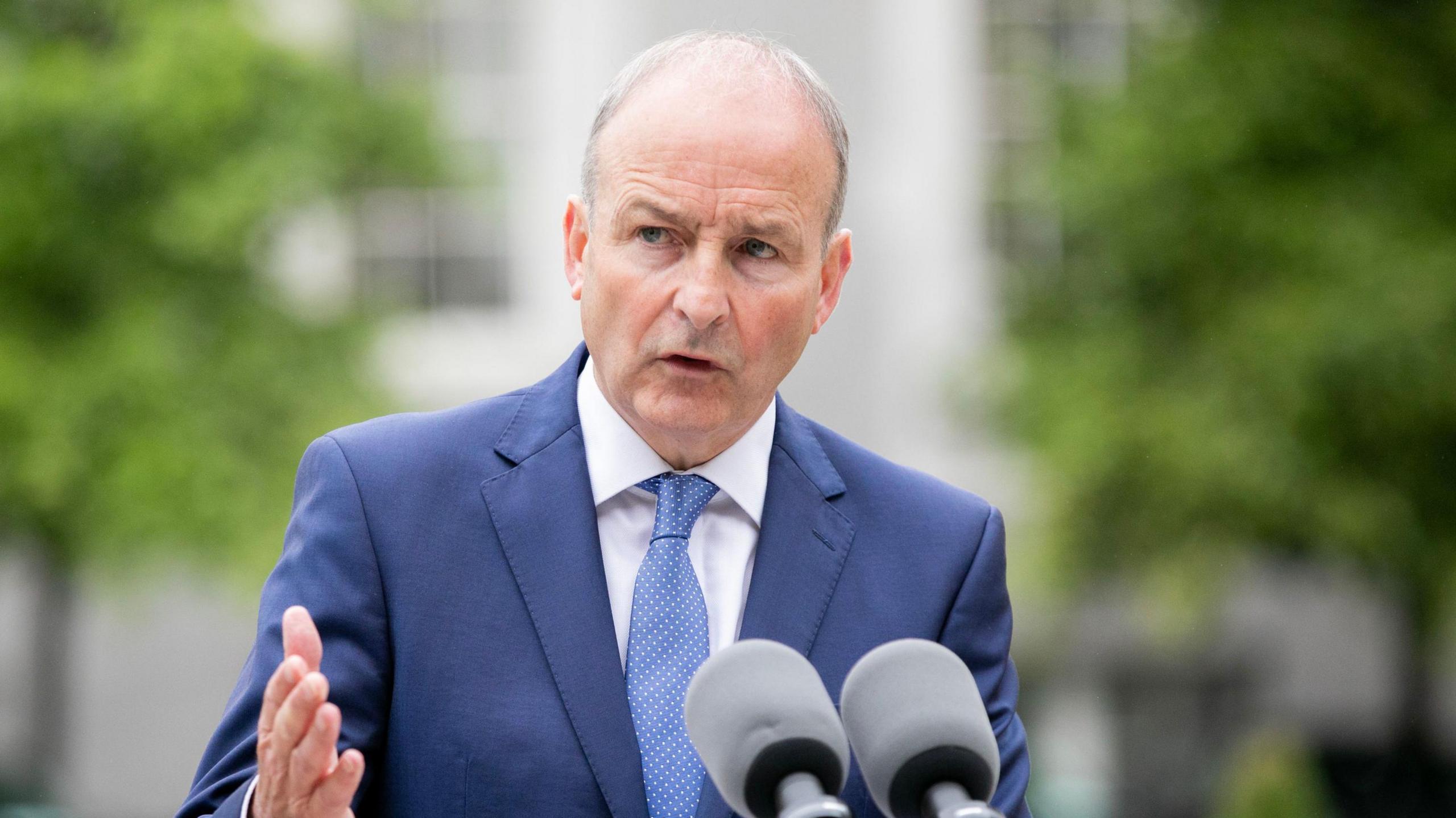
Mr Martin said his party will campaign on their own merit
Martin said Sinn Féin has ruled out working with Fianna Fáil and Fine Gael and they likewise had ruled out working with them.
"We have a multi-party system, or proportional representation system, it gives us good diversity. I'm not going to predict anything, the dynamic of the campaign will take over."
Speaking at the official launch of her party’s election campaign Sinn Féin leader Mary Lou McDonald said it was an "election of a lifetime" because for the first time in 100 years the Irish people had a "chance to elect a government which didn’t include Fianna Fáil and Fine Gael".
She rejected any suggestion that recent controversies would damage the party at the polls.
She said the party was strong and facing into the campaign with determination.
She also claimed to have the strongest front bench team in the election
Sinn Féin has selected 71 candidates and may yet add to that number.
How many seats are there?
In this general election, the number of TDs (MPs) seeking election and the number of constituencies will increase following a 2023 review.
There are now 43 Dáil constituencies - an increase of four from 2020 - which will elect between three and five TDs each.
A total of 174 TDs will be selected, meaning that 88 TDs will be required to form a majority government.
The deadline for nominations is 12:00 on Saturday 16 November.
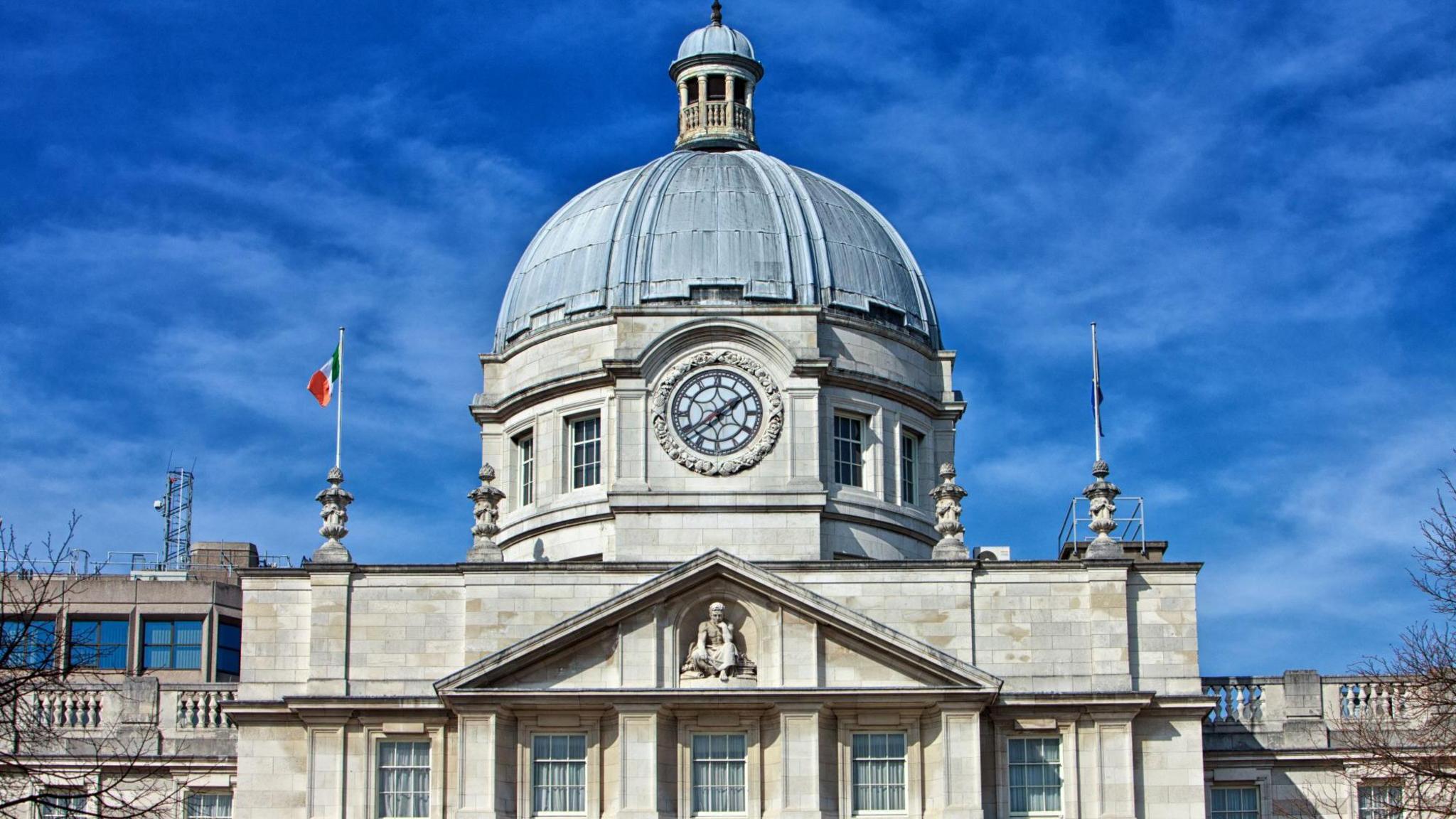
There will be 14 more TDs joining the Dáil Éireann chamber after the general election
Who is in power at the minute?
Three parties - Fine Gael, Fianna Fáil and The Green Party - make up the coalition government in the Republic of Ireland.
Voters last went to the polls in February 2020 where Fianna Fáil won the most seats (38).
But the party fell short of a majority and entered into negotiations with Fine Gael, who led the then-outgoing government, and the Green Party.
An agreement on a coalition deal was reached four months later, having been delayed due to the coronavirus pandemic, in June 2020.
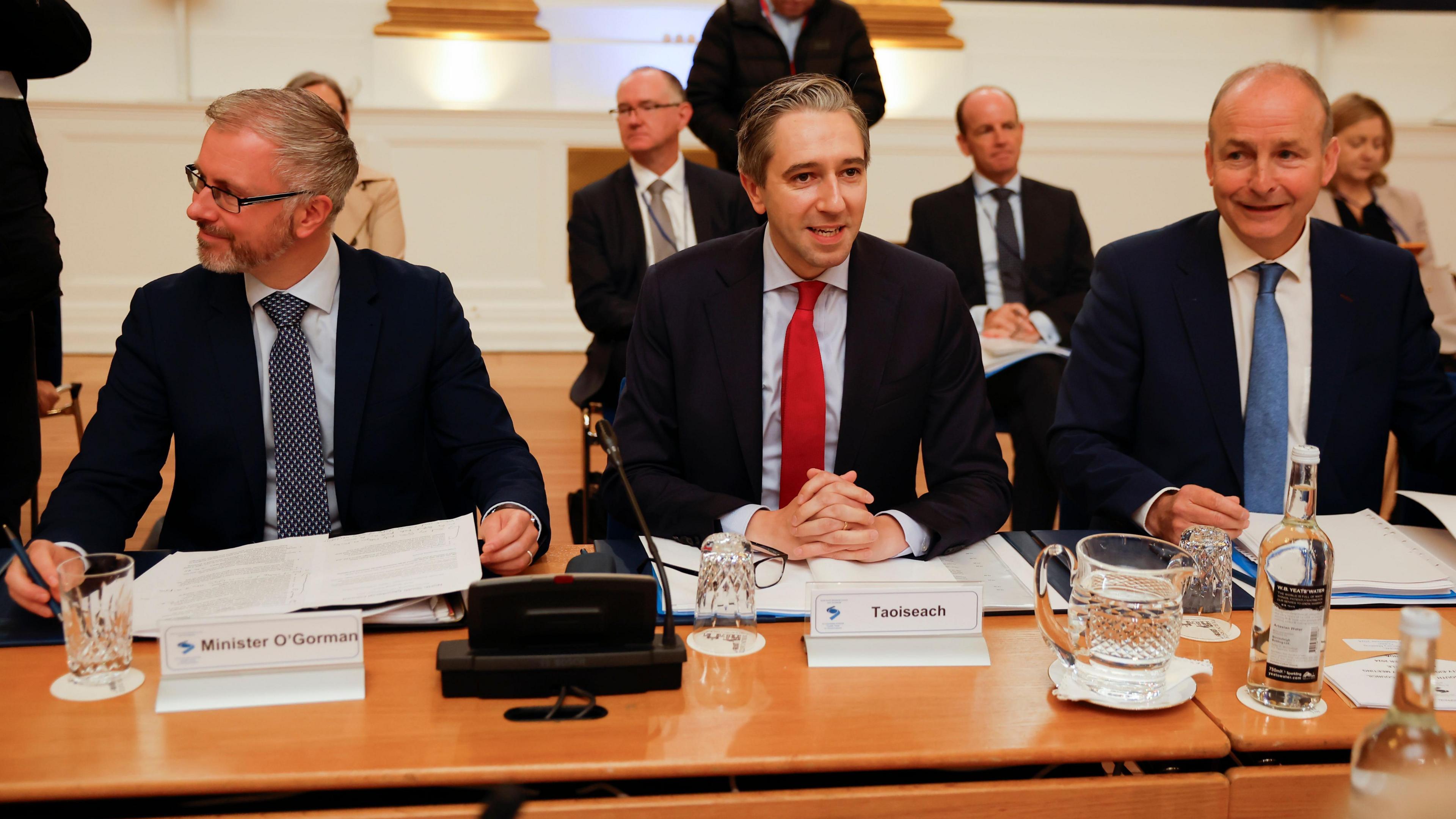
The Green Party's Roderic O'Gorman (left), Simon Harris and Micheál Martin currently make up the leaders of Ireland's coalition government
As part of this, the role of taoiseach was to be swapped between Fianna Fáil and Fine Gael mid-way through the five-year term - with Harris currently in the top job.
Sinn Féin, who recorded a historic result in the 2020 election after winning 37 seats, currently lead the opposition.
A number of other parties, such as Labour, Social Democrats, People Before Profit, Aontú and independents, also make up the opposition.
Time of the essence in snap election
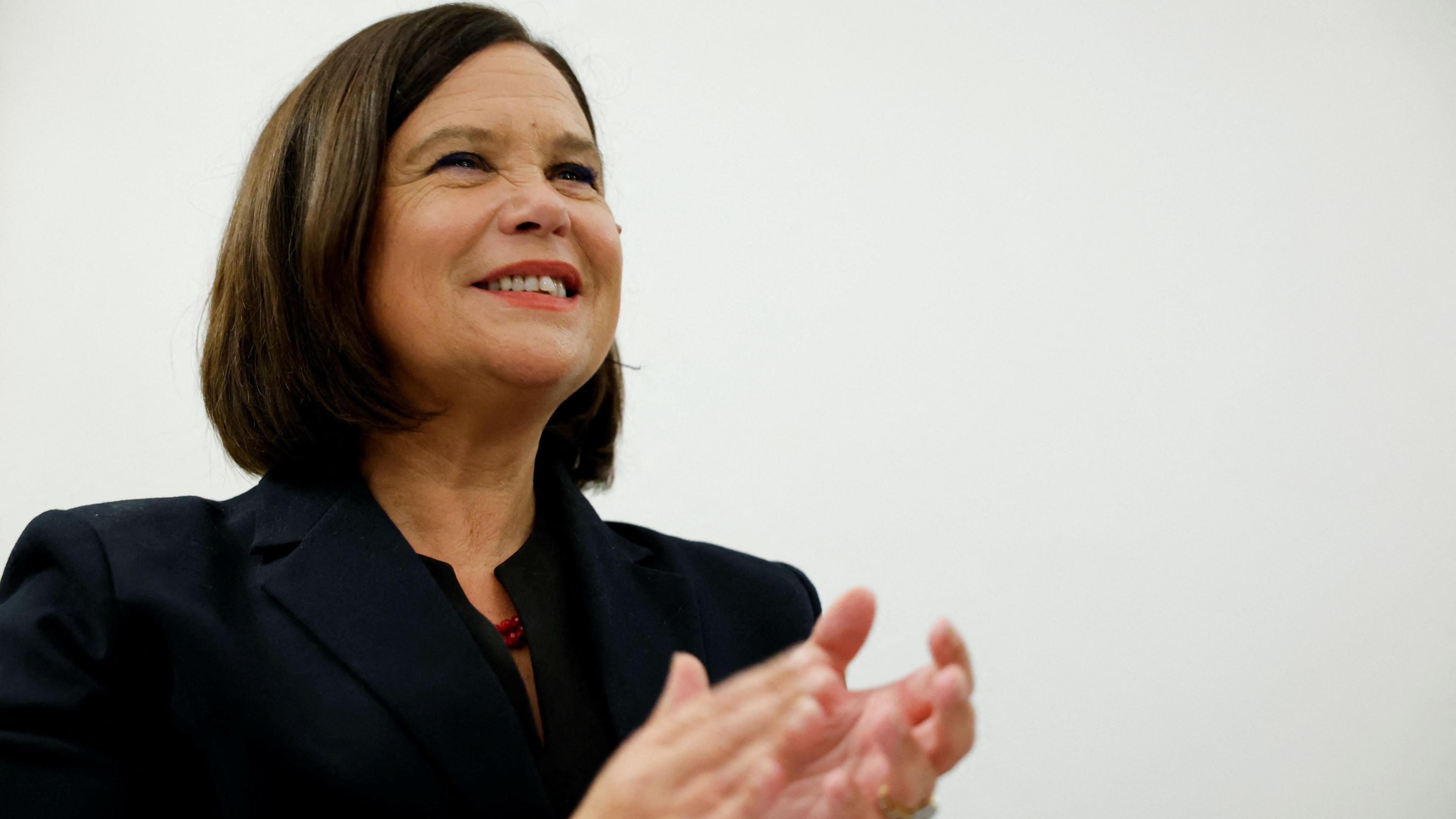
Sinn Féin President Mary Lou McDonald launched the party's Dublin Central election campaign candidates on Thursday
Analysis by BBC News NI political editor Enda McClafferty
When Higgins formally dissolves the Dáil, that will sound the starting gun on the election campaign.
But it's quite clear the parties were not waiting for that gun - they already started this morning.
Along the street near government buildings, you can see the posters on the lampposts and large screens being driven around Dublin by Fianna Fáil trying to urge people to vote for them.
Not surprisingly, it’s only going to be a three week campaign so time is very much of the essence.
This morning, Micheál Martin took some early swipes at Sinn Féin, rejecting any plans to form a coalition government.
Mary Lou McDonald made it clear at a campaign launch on Thursday that her preference is a coalition of the left led by Sinn Féin.
This is a McDonald in a sense reaching for the same template which the party had back in 2020, which served them so well back then.
And that template is built around change.
That was the target this time round again and an opportunity for the electorate in the Republic to vote for real change, in other words, to have a government that doesn’t include Fianna Fáil or Fine Gael for the first in 100 years.
The government parties Fianna Fáil, Fine Gael and the Green party are facing big challenges as well because over the course of the past four years the lines between them have been blurred, albeit they are all very different political parties, but now they are fishing in the same pond for votes.
So now they have to distinguish themselves from each other if they are to secure the votes they need to get back into government again and that is going to be a bit of a challenge.
- Published7 November 2024
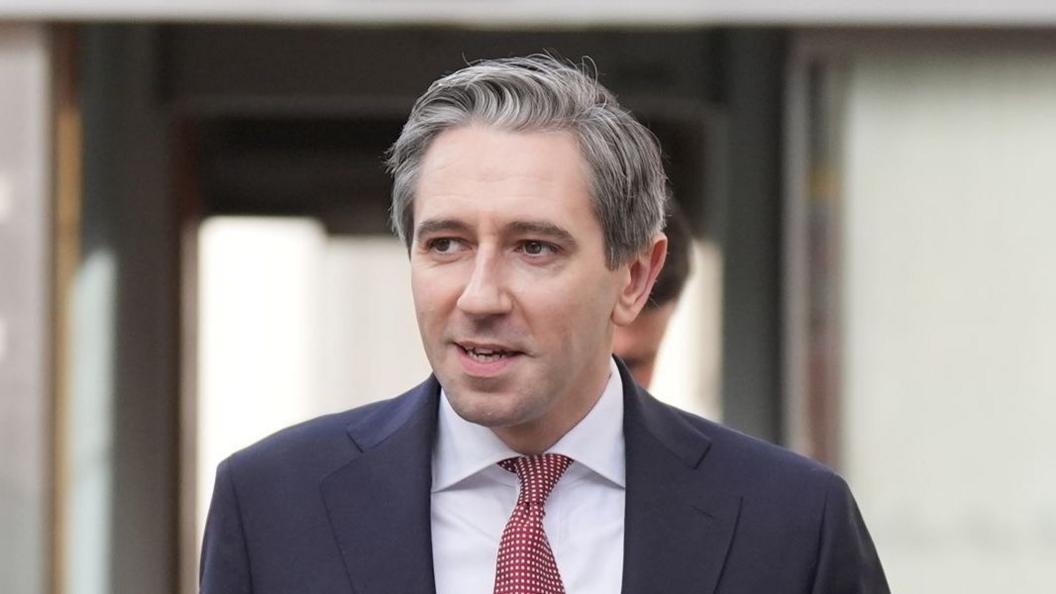
- Published6 November 2024
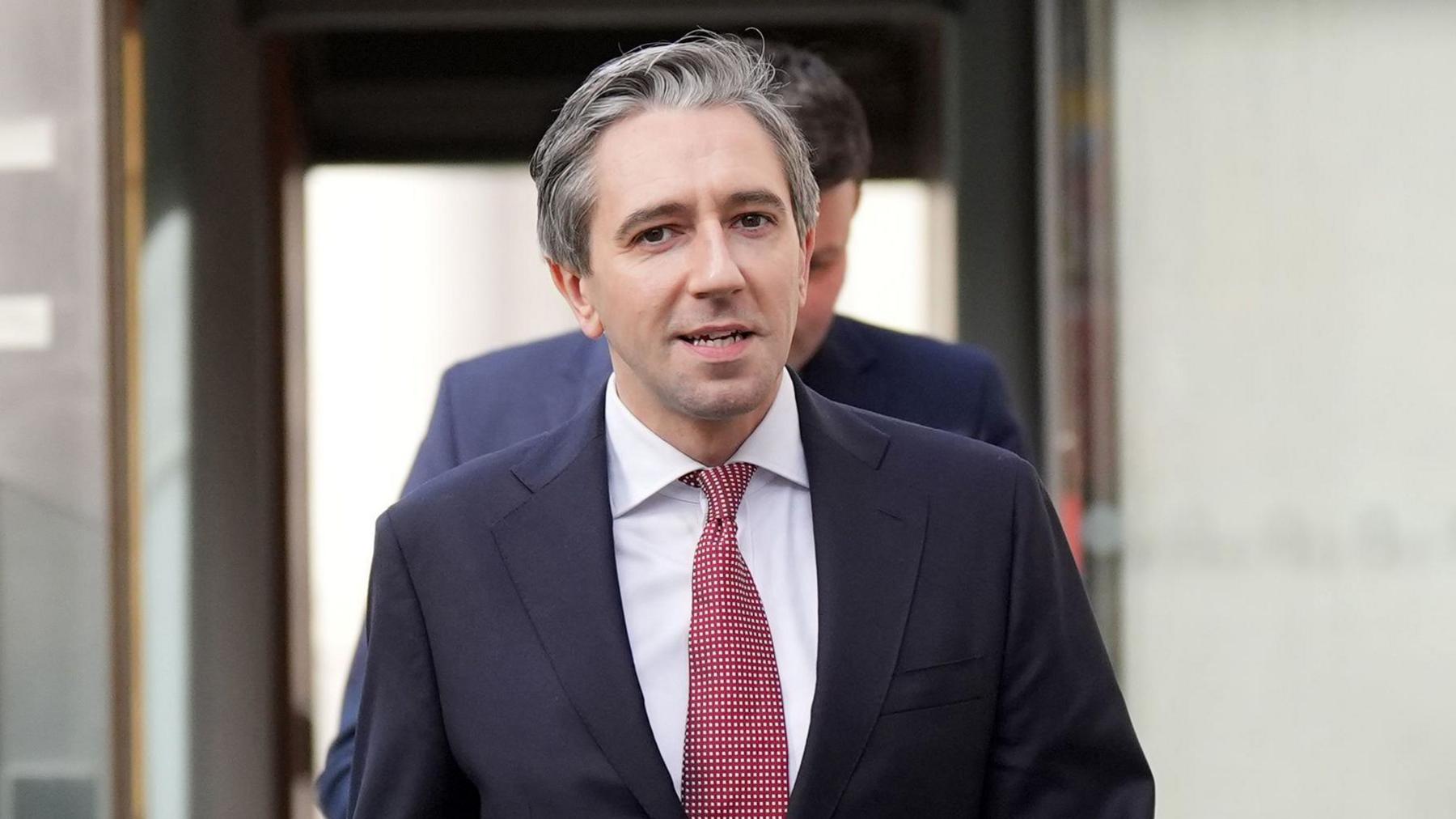
- Published29 November 2024
